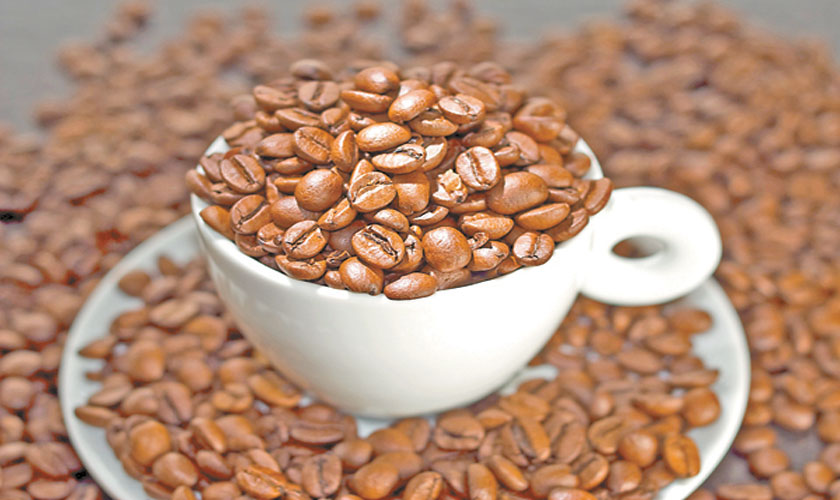Eating right can actually do wonders for your brain. You! takes a look...
health
Eating right can actually do wonders for your brain. You! takes a look...
Want to be smarter? Well, all you have to do is eat the right kind of food. Don’t believe us? According to scientific research, eating well is good for your mental as well as physical health. The brain requires nutrients just like your heart, lungs or muscles do. However, there are certain foods that are particularly important to keep our brain healthy. What you eat can greatly influence the brain skills and can also ward of diseases that affect the brain such as Alzheimer’s and different forms of dementia. Here are a few foods that you must add to daily your diet.

A study suggests that a good intake of vitamin E might help to prevent cognitive decline, particularly in the elderly. Nuts especially walnuts are a great source of vitamin E along with olives, seeds, brown rice and whole grains. These foods are an antioxidant associated with a lower risk of developing Alzheimer’s disease. Vitamin E rich foods may trap free radicals that can damage the brain cells.
Those bright, round yolks are rich in choline, a B vitamin-like nutrient. When you eat eggs, your brain uses choline to make acetylcholine, a neurotransmitter that may be important for maintaining memory and communication among brain cells. Researchers recently tracked the eating habits of nearly 1,400 healthy adults for 10 years and found that choline intake correlated positively with better performance on certain types of memory tests.
There is no magic bullet to boost IQ or make you smarter but certain substances, like caffeine, can energize you and help you concentrate. Found in coffee, chocolate, energy drinks, and some medications, caffeine gives you that unmistakable wake-up buzz, though the effects are short-term.
Sugar enhances alertness
Sugar is your brain’s preferred fuel source - not table sugar, but glucose, which your body processes from the sugars and carbs you eat. That’s why a glass of something sweet to drink can offer a short-term boost to memory, thinking, and mental ability. Consuming too much sugar, though, can impair memory.
A protein source linked to a great brain boost is fish - rich in omega-3 fatty acids that are key for brain health. These healthy fats have amazing brain power. A diet with higher levels of omega-3 fatty acids has been linked to lower dementia and stroke risks and slower mental decline; plus, they may play a vital role in enhancing memory, especially as we get older. For brain and heart health, eat two servings of fish weekly. Essential fatty acids (EFAs) cannot be made by the body and must be obtained through diet. The most effective omega-3 fats occur naturally in oily fish. They are good for healthy brain function.
Broccoli, cauliflower, cabbage, and Brussels sprouts are filled with antioxidants like vitamin C and plant compounds called carotenoids, which are particularly powerful brain protectors. For instance, broccoli contains a great source of vitamin K, which is known to enhance cognitive function and improve brainpower. Antioxidants prevent damage from free radicals, which are waste products that your body makes when cells use fuel to create energy. Your brain is especially vulnerable to damage from free radicals, as it uses a lot of fuel (it’s only about 3% of your body weight but uses up to 17% of your energy). Since your mind makes a lot of these toxic by-products, ample antioxidants help to disarm and defuse them.
Like everything else in your body, the brain cannot work without energy. The ability to concentrate and focus comes from the adequate, steady supply of energy - in the form of glucose in our blood to the brain. Achieve this by choosing whole grains, which release glucose slowly into the bloodstream, keeping you mentally alert throughout the day. Opt for brown cereals, wheat bran, granary bread and brown pasta.
Evidence suggests that the consumption of blueberries may be effective in improving or delaying short term memory loss.
Research shows that lycopene, a powerful antioxidant found in tomatoes, can help protect against the kind of free radical damage to cells which occurs in the development of dementia, particularly Alzheimer’s.
Certain B vitamins - B6, B12 and folic acid - are known to reduce levels of homocysteine in the blood. Elevated levels of homocysteine are associated with increased risk of stroke, cognitive impairment and Alzheimer’s disease. A study of a group of elderly patients with mild cognitive impairment found that after two years of intervention with high doses of B6, B12 and folic acid there was significantly less brain shrinkage compared to a subset given placebo treatment.
Just a handful of pumpkin seeds a day is all you need to get your recommended daily amount of zinc, vital for enhancing memory and thinking skills.